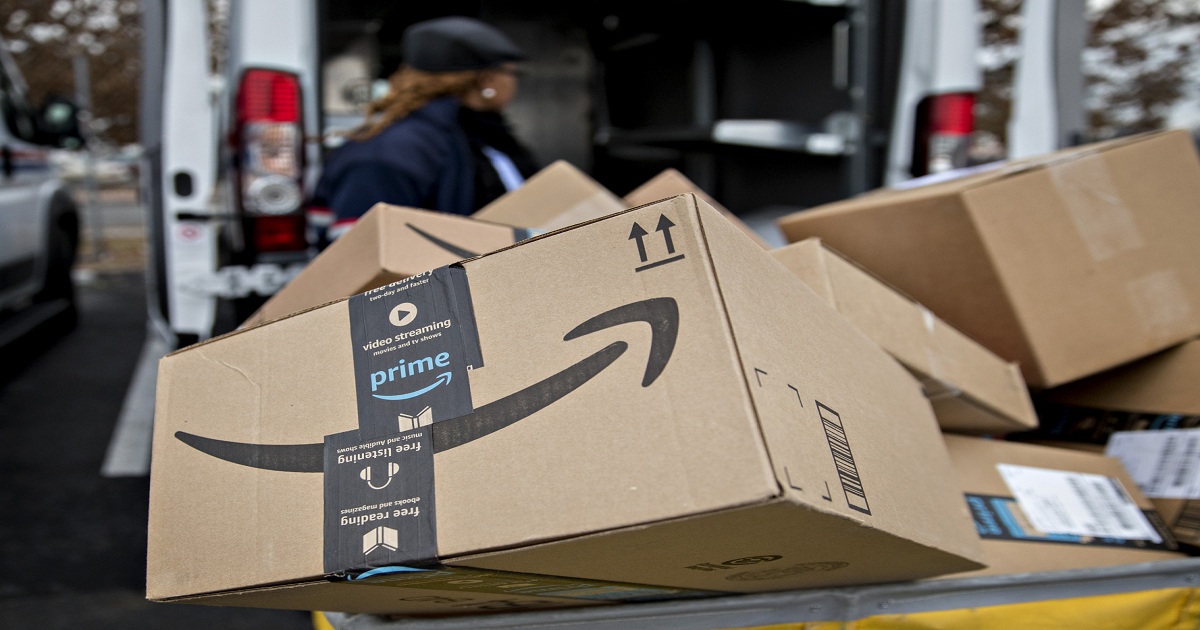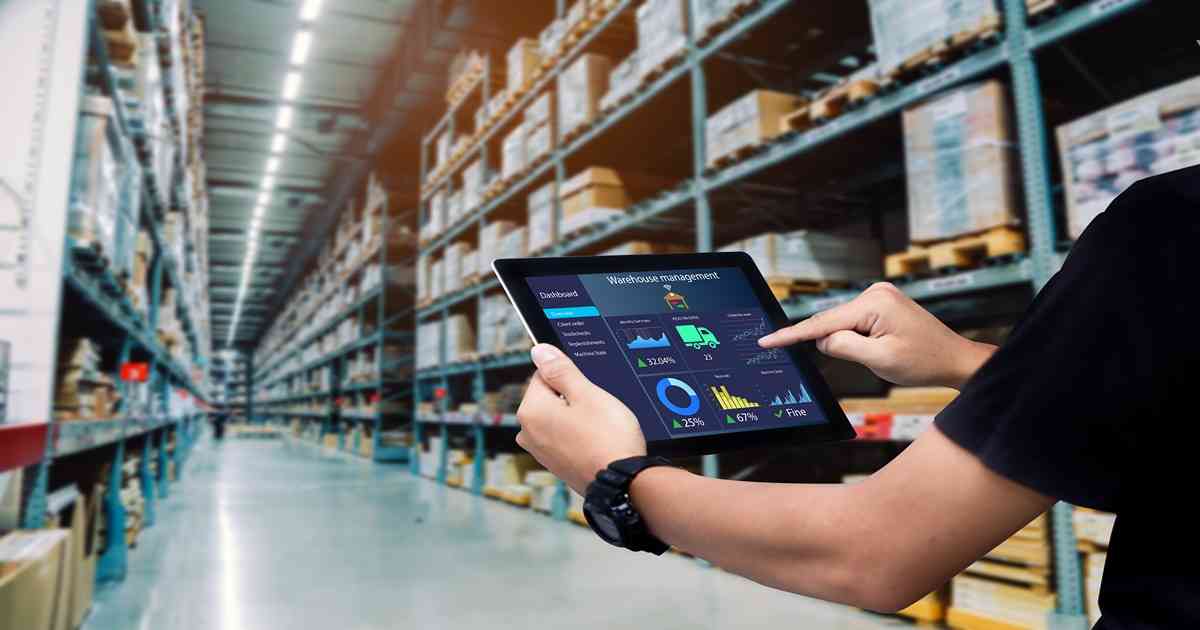
Management
Article | June 21, 2023
Innovations such as AI and automation have been tipped to kickstart the Fourth Revolution. While the technology is being widely adopted, it is constantly evolving. Therefore, there is uncertainty surrounding its overall impact, particularly on professional roles within the supply chain. Some fear that the technology will replace its human counterparts, while other experts suggest it will work in unison with humans, supporting them to focus on higher value opportunities. Amidst all of this uncertainty one thing is for certain: AI and automation will change how we operate.
Read More

Transportation
Article | April 26, 2023
Risk management has been a problem for as long as supply chains have existed. Because of the interdependence of all its connections, even a minor issue in one isolated region has the potential to jeopardize a whole global supply chain. As a result, when major global trends and events occur, the potential for widespread supply chain disruption is enormous.
Global supply chain risks and market disruptions have reached an all-time high. The most notable of them is the COVID-19 pandemic. In a 2020 survey, the Institute for Supply Management discovered that 95% of companies faced operational issues due to the pandemic. As a result, business executives all around the globe believe that if they want to be more resilient and competitive in the present market, they need to modernize and make significant changes to their supply chain strategy.
Other recent factors that have had a significant impact on traditional supply chain practices include the fast pace of change in consumer behaviors and a pretty unstable trade and political environment.
In the last ten years, e-commerce spending has tripled, and internet shopping had increased by 149% in 2020 compared to the previous year. With the growth of e-commerce, there has been a rise in customer demand for faster delivery and more personalized shopping experiences. The Amazon Effect refers to the growing expectation for same-day delivery and its effect on businesses and logistical networks. To be resilient enough to react to these rising demands, supply chain managers have had to make fast and significant modifications to their logistics and warehousing networks, as well as discover new ways to collaborate with third-party fulfillment partners.
Even before the impact of COVID-19, American businesses were attempting to reduce their dependence on foreign manufacturers and suppliers. Foreign tariffs and trade policies had become more unpredictable by 2019, and businesses were seeking technological solutions to make the supply chains more self-sufficient and resilient. As a result, integrating digital transformation and Industry 4.0 technology into supply chain operations is quickly becoming a top concern for global business leaders.
How does Supply Chain Resilience Work?
A flexible contingency plan and the ability to react swiftly to operational disruptions are important characteristics of effective supply chain management. However, to be truly resilient, a supply chain must be able to predict and anticipate disruptions and, in many cases, avoid them entirely.
Strategic supply chain planning is an important step in achieving resilience because it synchronizes all supply chain components and increases visibility and agility. Supply and demand needs are better understood, and production is synchronized due to supply chain planning. This integrated, forward-thinking approach assists businesses in better anticipating problems, reducing the impact of supply chain disruptions, and improving overall operations.
When a business has the digital systems to analyze and make sense of Big Data, it significantly improves supply chain resilience. Artificial intelligence-enabled systems can curate disparate data sets from across the business and the globe. To discover trends and opportunities, news, competitor activity, sales reports, and even customer feedback can be examined together. The system's connected devices are constantly monitored, providing real-time insights about where and how processes can be automated and improved. For instance, AI, machine learning, and modern databases acquire and handle Big Data and analyze and learn from it in an almost infinite number of ways. This enables intelligent automation across the network and provides supply chain managers with the real-time insights they require to respond quickly to disruption and unexpected events.
Supply chain managers have traditionally sought to limit the number of partners and suppliers in their network to minimize operational and logistical complexity. This approach is based on the stability of the social, environmental, and political systems. Unexpected disruptions in one region can slow or even stop network operations across the board. Supply chain resilience technologies, such as blockchain, sensors, and advanced analytics, enable supply chain managers to monitor complex partnerships and supplier contracts even in the most remote parts of their network.
Profitability in the supply chain has always been dependent on minimizing excess and keeping inventories as lean as possible. Capacity and inventory buffers are expensive, and supply chain managers have often bet against disruptions to keep prices low. When the pandemic struck, many businesses discovered the real cost of the gamble. Supply chain operations can involve on-demand manufacturing, virtual inventories, and predictive demand forecasting using digital supply chain technologies to remain resilient, even in times of unexpected disruption.
Benefits of a Resilient Supply Chain
Finding a successful balance between supply and demand is a significant issue for any supply chain manager in an increasingly competitive market. Many businesses that have cut costs on diversification, supply chain technology, and other resilience measures have lately discovered the true cost of those choices. However, when businesses engage in diversification, supply chain technologies, and other resilience measures, they can achieve a variety of business benefits, including:
More efficient operations: Better resilience often results in less risk and a greater capacity to invest in innovation and growth. For example, according to a 2020 global business analysis conducted by Bain and Company, businesses that prioritized their investment in supply chain resilience had up to 60% quicker product development cycles and were able to increase production capacity by up to 25%.
Enhanced productivity: Resilient supply chain solutions lead to the overall system increased productivity. According to a McKinsey 2020 survey, supply chain leaders from across the world report increased productivity due to resilient supply chain systems, and 93% of those surveyed plan to prioritize resilient supply chain strategies for investment in the next year.
Risk reduction: Supply chain activities are often the most vulnerable to risk and loss in many businesses. Supply chains, by nature, are geographically distributed and functionally complex. As a result, supply chains are particularly vulnerable to risk. Resilient supply chain technologies minimize risk by providing insight into all network operations and enabling companies to improve and adjust their processes and logistics in real-time.
Technologies for an Agile Supply Chain
Digital transformation and modern supply chain technology provide businesses with the resilience and competitive advantage they need to react swiftly to disruptions and opportunities.
Artificial intelligence (AI): AI-powered supply chain systems can offer deep procedural and operational insights by gathering and analyzing data from many sources. Predictive analytics and Big Data analysis can assist in predicting risk and demand and recommending measures and reactions in the company.
Machine learning: Machine learning enables the discovery of patterns in supply chain data and the identification of these influential factors - all while constantly learning. This enables supply chain managers to react fast with the finest workflows and operational strategies available.
Industrial Internet of Things (IIoT): The IIoT network in a supply chain comprises connected devices and objects with sensors and unique IDs that allow them to transmit and receive digital data. They collect information and communicate with the central system. AI can analyze and understand this data to enable quick decisions and intelligent automation of supply chain operations and procedures.
Additive (3D) printing: Smart factories can quickly reprogram 3D printers to produce specific products on-demand without disrupting regular business operations in the long run. The accessibility of potential virtual inventories enables supply chains to defend themselves against disruption.
Robots and autonomous things: Robots and drones, which are intelligently automated for speed, efficiency, and accuracy, can adapt their operations on the go to meet quickly changing requirements. They also reduce the risk of harm by eliminating overly repetitive or dangerous tasks from human workers.
Modern databases: The resilient supply chain solutions rely on Big Data, advanced analytics, and real-time insights from modern databases. Supply chain technology can be improved to operate faster and most resilient when equipped with a modern ERP system and an in-memory database.
Resilience means more than just surviving a disruption in operations. A fully resilient supply chain and businesses survive hardship and use it to innovate and improve their business. Building a resilient supply chain is very important in this modern era because disruptions like a pandemic, wars, climate change, etc., are occurring a lot these days. A resilient supply chain helps businesses to survive and thrive even during tough times. To read more about ways to boost supply chain performance, click here.
FAQ
What is supply chain resilience?
Supply chain resilience refers to the supply chain's capacity to be prepared for unexpected risk events, react and recover swiftly to potential disruptions, and grow by shifting to a new, more desirable state in order to improve customer service, market share, and financial performance.
How is supply chain resilience measured?
A supply chain's resilience index is calculated by aggregating its company's resilience index. Given that supply chain company's performance influences overall supply chain performance, supply chain resilience should be measured using the companies' resilience index.
{
"@context": "https://schema.org",
"@type": "FAQPage",
"mainEntity": [{
"@type": "Question",
"name": "What is supply chain resilience?",
"acceptedAnswer": {
"@type": "Answer",
"text": "Supply chain resilience refers to the supply chain's capacity to be prepared for unexpected risk events, react and recover swiftly to potential disruptions, and grow by shifting to a new, more desirable state in order to improve customer service, market share, and financial performance."
}
},{
"@type": "Question",
"name": "How is supply chain resilience measured?",
"acceptedAnswer": {
"@type": "Answer",
"text": "A supply chain's resilience index is calculated by aggregating its company's resilience index. Given that supply chain company's performance influences overall supply chain performance, supply chain resilience should be measured using the companies' resilience index."
}
}]
}
Read More

Supply Chain
Article | May 22, 2023
The rapid growth of e-commerce continues to create new challenges for retailers as they plan distribution strategies. One of those challenges is managing the high volume of returns. One in three shoppers returns items, and more than half read a company’s returns policy before making a purchase. Retailers lose $50 billion annually due to inefficiencies in processing returns, and distribution centers handling returns need 15% to 20% more space than a traditional facility.
Read More

Supply Chain
Article | May 22, 2023
Data volume in supply chains is usually enormous. Analytics applied to the supply chain help make sense of the pile of information by identifying patterns and drawing conclusions.
Contents
1 Importance of B2B Supply Chain Analytics
2 Obstacles in Supply Chain Analytics Integration
2.1 Barriers in Collecting and Processing Data
2.2 Insufficient Technical Skills
2.3 Issues in Managing and Integrating Data
2.4 Inadequate Analytics and Insights Generation
3 Addressing Supply Chain Analytics Complexities for Better Decision-Making
3.1 Leveraging External Expertise
3.2 Enhancing Collaboration and Communication
3.3 Improving Data Quality and Governance
3.4 Developing Analytics Capabilities
4 Power of Successful Supply Chain Analytics Integration in Transforming Businesses
5 Conclusion
1 Importance of B2B Supply Chain Analytics
Supply chain analytics has become a pillar of contemporary business strategy, enabling organizations to leverage data insights and enhance vital supply chain processes. By utilizing real-time data analytics, businesses can streamline their supply chain operations, boost productivity, and increase customer satisfaction. With unparalleled visibility into key performance indicators, B2B supply chain analytics provide the opportunity to identify inefficiencies, reduce costs, and react swiftly to ever-changing market dynamics, streamlining the process for supply chain business analysts who manage supply data.
Leveraging the power of supply chain analytics tools is important for the success of modern businesses in the age of data-driven decision making. With the ability to optimize inventory levels, manage lead times, and reduce transportation costs, supply chain data analytics provides a competitive advantage that can increase the efficiency, productivity, and profitability of businesses of all sizes and in all industries.
2 Obstacles in Supply Chain Analytics Integration
Supply chain analytics integration has become increasingly critical for companies seeking to optimize their supply chain operations. However, several obstacles hindering successful implementation often complicate the integration process; hence, understanding and knowing them in advance is vital for smooth operations.
2.1 Barriers in Collecting and Processing Data
Effective data collection and processing are critical in generating accurate insights to drive supply chain analytics decision-making. However, it comes with challenges; the most critical obstacle is data silos, where data is stored in isolated systems or departments, leading to difficulties in accessing and integrating it. It gets more complex when different departments or partners use varied data formats or standards. Additionally, cleaning and processing data is also challenging, as it involves identifying and eliminating duplicates, inconsistencies, and errors that can negatively impact analytics accuracy.
2.2 Insufficient Technical Skills
Successful supply chain analytics integration depends heavily on technical skills and knowledge. Insufficient technical talent and expertise are significant barriers to successful integration. The integration process requires specialized technical expertise and the supply of skilled professionals with expertise in ETL, statistical analysis, knowledge of ML, IoT, SQL, and more in managing supply chain analytics Talent lacking technical skills cannot accurately interpret data, leading to ineffective
decision-making. Preliminary data analysis, processing, and visualization due to a lack of technical expertise results in suboptimal decision-making, which can be costly for businesses.
2.3 Issues in Managing and Integrating Data
Data integration combines data from various sources and formats to create a unified view. However, businesses face data governance, quality, and standardization issues, resulting in incomplete or inconsistent data. Lack of accurate information reduces the efficiency of supply chain analytics and impacts decision-making. Additionally, data management is complex, and business face difficulties creating effective data management processes, resulting in problems related to storing, retrieving, and updating data.
2.4 Inadequate Analytics and Insights Generation
Obtaining valuable insights from enormous data collected during the supply chain process requires advanced analytics tools and technologies. Many businesses, however, continue to rely on traditional reporting methods, which limit the range and complexity of insights generated. The lack of expertise in data analysis and visualization can lead to poor interpretation and use of data, resulting in suboptimal decision-making. In addition, businesses experience difficulty identifying relevant data sources or may struggle to establish the necessary data governance frameworks to ensure data quality and accuracy.
3 Addressing Supply Chain Analytics Complexities for Better Decision-Making
Supply chain analytics can provide valuable insights, but the complexities involved in analyzing and interpreting data can be a significant hurdle. Learning the strategies for addressing these complexities to improve decision-making in supply chain management has become essential.
3.1 Leveraging External Expertise
Leveraging external expertise can be a powerful strategy for addressing supply chain analytics complexities related to collecting and processing supply chain data during integration. External experts bring specialized skills, experience, and knowledge that may not be available in-house, enabling organizations to overcome talent shortages and expand their capabilities. Furthermore, consultants, data scientists, or technology providers provide an objective viewpoint on the organization's data and processes, identifying areas for improvement and optimizing performance. By collaborating with external experts, organizations can access the latest tools, technologies, and best practices, ensuring that their supply chain analytics are up-to-date and relevant.
3.2 Enhancing Collaboration and Communication
Enhancing collaboration and communication can effectively address the challenge of insufficient technical skills in thriving supply chain analytics integration. By promoting cooperation and cross-functional communication, organizations can leverage the skills and expertise of team members from various departments to fill gaps in technical knowledge. This approach can also help to break down data silos and improve data sharing and integration. In addition, collaboration and communication can facilitate knowledge transfer, enabling team members to learn from one another and develop a more comprehensive understanding of the supply chain analytics process. Ultimately, this can lead to improved decision-making, as a more skilled and knowledgeable team can generate more accurate and insightful analytics.
3.3 Improving Data Quality and Governance
Businesses ensure accuracy, completion, and up-to-date data by establishing standardized processes and protocols for collecting, storing, and analyzing data. Data quality checks, including data cleansing and normalization, can help eliminate errors, redundancies, and inconsistencies that can negatively impact the accuracy and usefulness of analytics. In addition, effective data governance, including establishing data ownership, security, and privacy policies, helps ensure that data is managed and shared appropriately across the organization. As a result, it reduces the risk of data breaches, compliance violations, and other data-related issues, ensuring that organizations have access to reliable data for better decision-making.
3.4 Developing Analytics Capabilities
Developing capabilities significantly help organizations overcome inadequate analytics and insights generation challenges in analytics integration. Investing in advanced analytics tools and platforms like technical skills, data infrastructure, and advanced supply chain analytics techniques help businesses generate real-time, accurate, and actionable insights from collected data. Developing analytics capabilities requires creating a culture that values data and analytics, establishing robust data governance frameworks, upskilling the workforce and creating cross-functional teams collaborating on data-related projects. In addition, it helps businesses gain a competitive advantage.
4 Power of Successful Supply Chain Analytics Integration in Transforming Businesses
Effective supply chain analytics integration is revolutionizing business operations. Real-time and supply chain predictive analytics have helped businesses gain unmatched transparency in their supply chains, enhance critical processes, improve operational efficiency and customer satisfaction, and experience revenue growth and profitability. The ability to identify inefficiencies and supply chain optimization opportunities enables businesses to effectively allocate resources and reduce expenses. In addition, successful supply chain analytics integration enables businesses to respond quickly to changing market dynamics, optimize inventory management, and strengthen the resilience of their supply chains.
Businesses are leveraging the power of big data analytics to disrupt and transform supply chain at all levels. The concept of data, which was once a fundamental component of digital supply chain transformation, is now revolutionary. Therefore, it is essential to achieve advancements in supply chain analytics integration and management.
5 Conclusion
With technological and data analytics advancements, businesses can utilize real-time data insights to make data-driven decisions, optimize supply chain processes, and improve customer experiences. Integration of supply chain analytics is crucial for supply chain businesses of all sizes. Utilizing supply chain analytics software can further streamline integration as well as enhance data analytics and supply chain management.
Read More